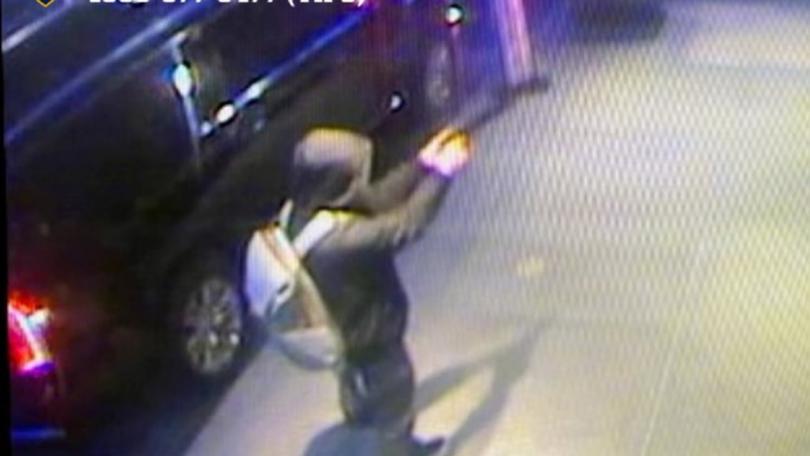The Washington Post: UnitedHealthcare CEO shooting is driving corporations to bolster security
The targeted killing of UnitedHealthcare CEO Brian Thompson is forcing a broad examination of security practices by corporations whose leaders are frequently subject to threats and internet vitriol.

The targeted killing of UnitedHealthcare CEO Brian Thompson, a powerful executive walking alone on a New York sidewalk, is forcing a broad examination of security practices by corporations whose leaders are frequently subject to threats and internet vitriol.
Thompson, 50, was reportedly the subject of threats before he was fatally shot Wednesday morning outside the midtown Manhattan hotel where UnitedHealthcare was holding its annual investor conference. New York police said Thompson was not accompanied by a security detail at the time he was shot by an unidentified gunman, who remained the subject of a manhunt Friday.
The reported threats, and publicly available information about the event, should have “necessitated some level of protection,” said Jonathan Wackrow, chief operating officer for Teneo Risk and a former Secret Service agent. “The question remains, why did he not have it?”
Sign up to The Nightly's newsletters.
Get the first look at the digital newspaper, curated daily stories and breaking headlines delivered to your inbox.
By continuing you agree to our Terms and Privacy Policy.Thompson’s killing, by a masked gunman who waited for him before methodically shooting him from behind, shocked corporate leaders and the public alike. But security consultants said the shooting, while exceedingly rare, was indicative of rising levels of danger for executives whose companies are often the subject of intense public controversies.
Health-care leaders can face a particularly high risk of violence, security experts said, given that their decisions can affect whether people have access to critical medical care.
The targeting of Thompson also highlights the potential danger to executives who aren’t household names. Though he ran a business that provided health insurance to 50 million people and brought in $281 billion in revenue last year, Thompson oversaw a subsidiary of a larger company - UnitedHealth Group - and wasn’t its public face.
Executives in the internet age have faced rising risks, as online databases make it possible to track corporate planes and identify executives’ home addresses. Police in Maple Grove, Minnesota, where Thompson lived, said they received apparently bogus bomb threats at the homes of Thompson and his wife hours after he was killed.
There were some indications that health insurance companies have taken immediate steps to enhance security. UnitedHealth has removed the webpage listing the photos and bios of its top executives. CVS, which owns insurer Aetna, has also removed photos of its leaders on its website.
UnitedHealth said late Thursday that “our priorities are, first and foremost, supporting Brian’s family; ensuring the safety of our employees; and working with law enforcement to bring the perpetrator to justice.” The company “will continue to be there for those who depend on us for their health care,” it added. It did not respond to questions about threats against Thompson or his level of protection.

Six of the nation’s largest insurers - CVS’s Aetna, Cigna, Elevance, Humana, Kaiser Permanente and the Blue Cross Blue Shield Association - either declined to say whether they were taking extra security measures or did not respond to requests for comment.
“Out of respect for the Thompson family, we’re not commenting at this time,” said Phillip Blando, a CVS spokesman.
“We will not comment on Humana’s security procedures,” a Humana spokesperson said.
Law enforcement officials have not identified a motive for Thompson’s killing. Police found words on casings at the scene that echo a common criticism of insurance companies - “delay, deny, defend” - that could indicate he was targeted in connection with his work, according to a person with knowledge of the investigation.
Corporate leaders are sometimes the subject of direct verbal protests or even physical confrontation by activists, analysts said.
“There are always issues and incidents involving leaders within companies, but they’re more low level - you get people having paint thrown on them, eggs tossed,” said Dave Komendat, president of DSKomendat Risk Management Services and a former chief security officer at Boeing. He participated in a telephone call with dozens of corporate security officers to discuss best practices after the shooting.
Health insurers like UnitedHealthcare have “at times, a lot of angry customers,” said Fred Burton, a former special agent with the U.S. Diplomatic Security Service who now works at Ontic. “I guarantee you, anybody else in this sector - in the health-care sector - is reassessing their security posture to see what kind of threats are out there.”
Dale Bucker, CEO of Global Guardian, said his firm fielded 47 requests for armed agents to protect executives within hours of the shooting. Allied Universal has received hundreds of calls for threat assessments or immediate CEO security, said Glen Kucera, president of its enhanced protection division.
But while corporate security concerns are increasing, security measures are not ubiquitous. Less than a quarter of S&P 500 companies provided home or personal security as a financial perk to their CEO in 2023, according to WTW, a risk management consultancy. Only 16 percent provided such services to top executives other than the CEO. Such disclosures only concern security outside the workplace.
Thompson, for instance, was also a top executive of UnitedHealthcare’s parent corporation, UnitedHealth Group, and received pay valued at $10.2 million last year. The company didn’t report paying any fees for personal security for its executives - benefits that have to be disclosed if they exceed $10,000 - in securities filings going back to 2018.
Americans take a dim view of the medical system, with views on health-care quality at their lowest point since Gallup began collecting the data in 2001. Health insurers get much of the blame: Nearly a third of Americans gave health insurance companies a poor rating in 2023, while 11 percent said the same of hospitals, according to Gallup survey results.
Insurance companies denying claims has long fueled consumer anger, political controversies and regulatory investigations, and the use of computer algorithms to rapidly make decisions about care has become a new source of outrage.
A Senate subcommittee released an investigative report in October, finding that insurers who contract with government to provide Medicare benefits are seeking to boost profits at the expense of seniors. It focused on how the companies increasingly deny claims for seniors who seek stays in rehabilitation facilities as they recover from injuries or illness.
The report, by the Democratic majority, found that UnitedHealthcare’s rate of denying authorization for such stays increased from 10.9 percent in 2020 to 22.7 percent in 2022, during a time it was seeking to automate the process. The company’s denial rate for authorizing stays at skilled nursing facilities rose to 12.6 percent in 2022, nine times higher than in 2020. It also cited similar practices by CVS’s Aetna and Humana.
UnitedHealth, CVS and Humana did not immediately respond to requests for comment on the Senate report.
A lawsuit filed last year against UnitedHealth accused the company of using artificial intelligence with a high rate of errors to wrongfully deny claims to seniors. The company has moved to dismiss the case for a range of reasons, arguing in part that the plaintiffs had not exhausted all of their options for appeal.
Even Thompson’s LinkedIn page serves as a kind of barometer of the public’s view of health insurers, where a bland post praising a colleague’s work elicited comments like “hypocrisy at its finest” and stories of battling to get information on gravely ill family members.
Some security consultants said that having a professional protecting Thompson might have made a difference, pointing out that they might have taken a more circuitous route to the hotel or swept the area beforehand to see if anyone was loitering.
“If there was a detail on the gentleman, I think it certainly could have been avoided,” said A.J. Caro, CEO of Arrow Security, which provides security guard services to hospitals, schools and various businesses.
Still, many executives chafe at protection and feel they’re not in danger. More than just having a security specialist present, executives need one they can confide in about things happening in their personal lives that could make them a target, too, said Manny Mounouchos, founder and CEO of Avante, a Toronto-based security firm that provides executive protection globally.
Wackrow, the former Secret Service agent, said that Thompson’s shooting may mark the beginning of lasting change in corporate security.
It “was really the first time that many corporate leaders actually saw the manifestation of a threat into physical, targeted violence,” he said. “It played out right before their eyes. I think that for a lot of corporate leaders, that rattled them.”
© 2024 , The Washington Post
